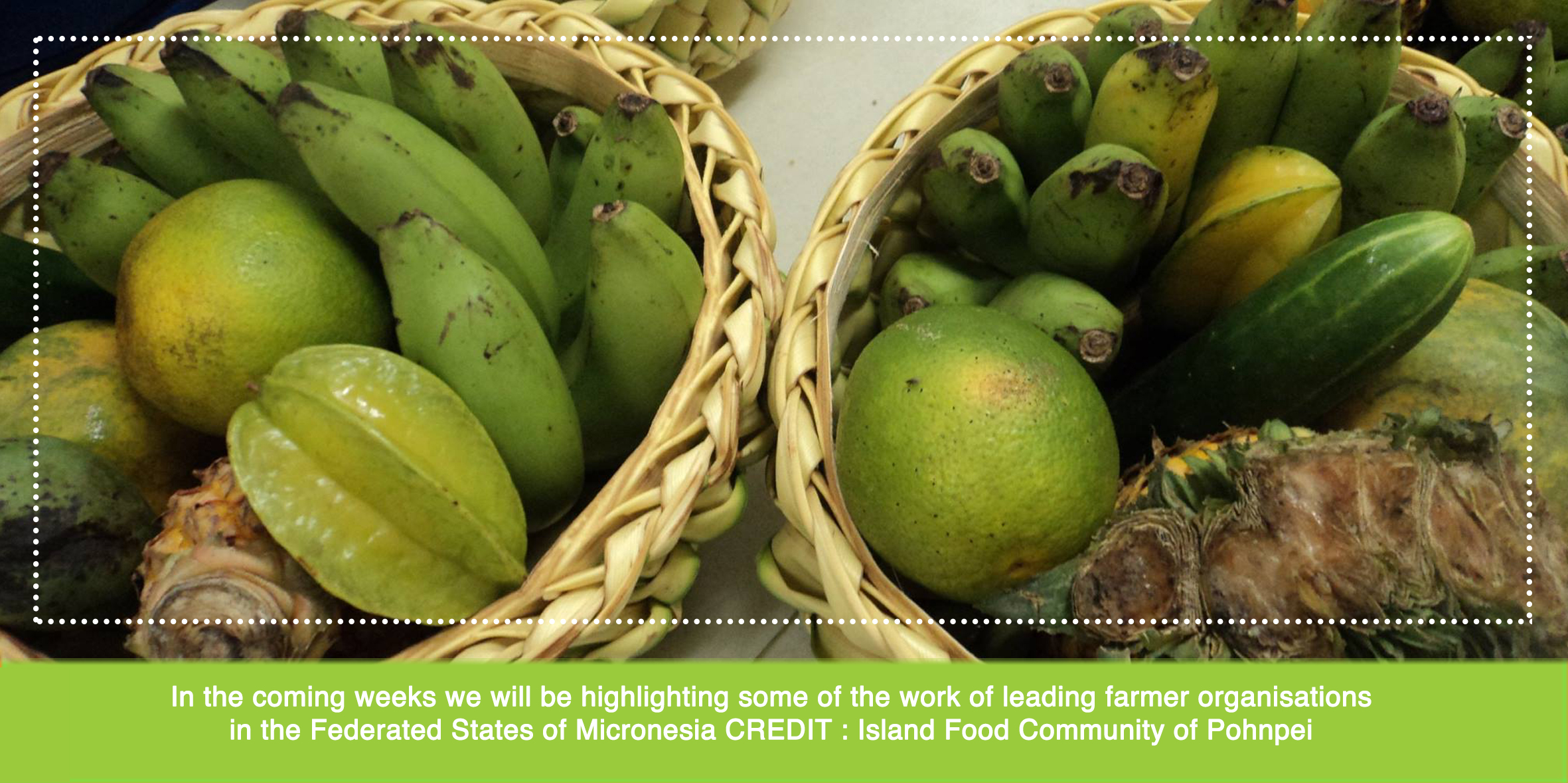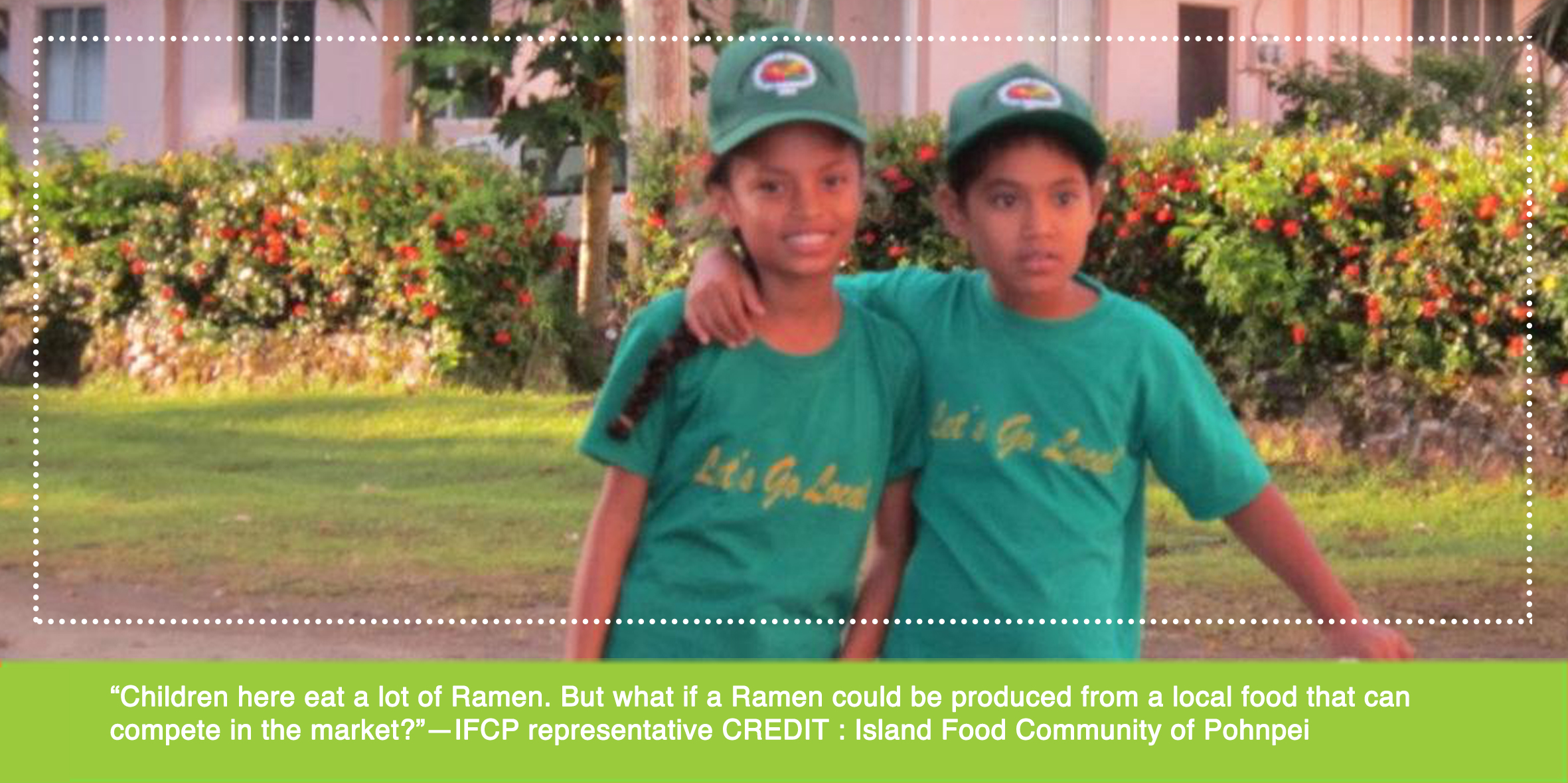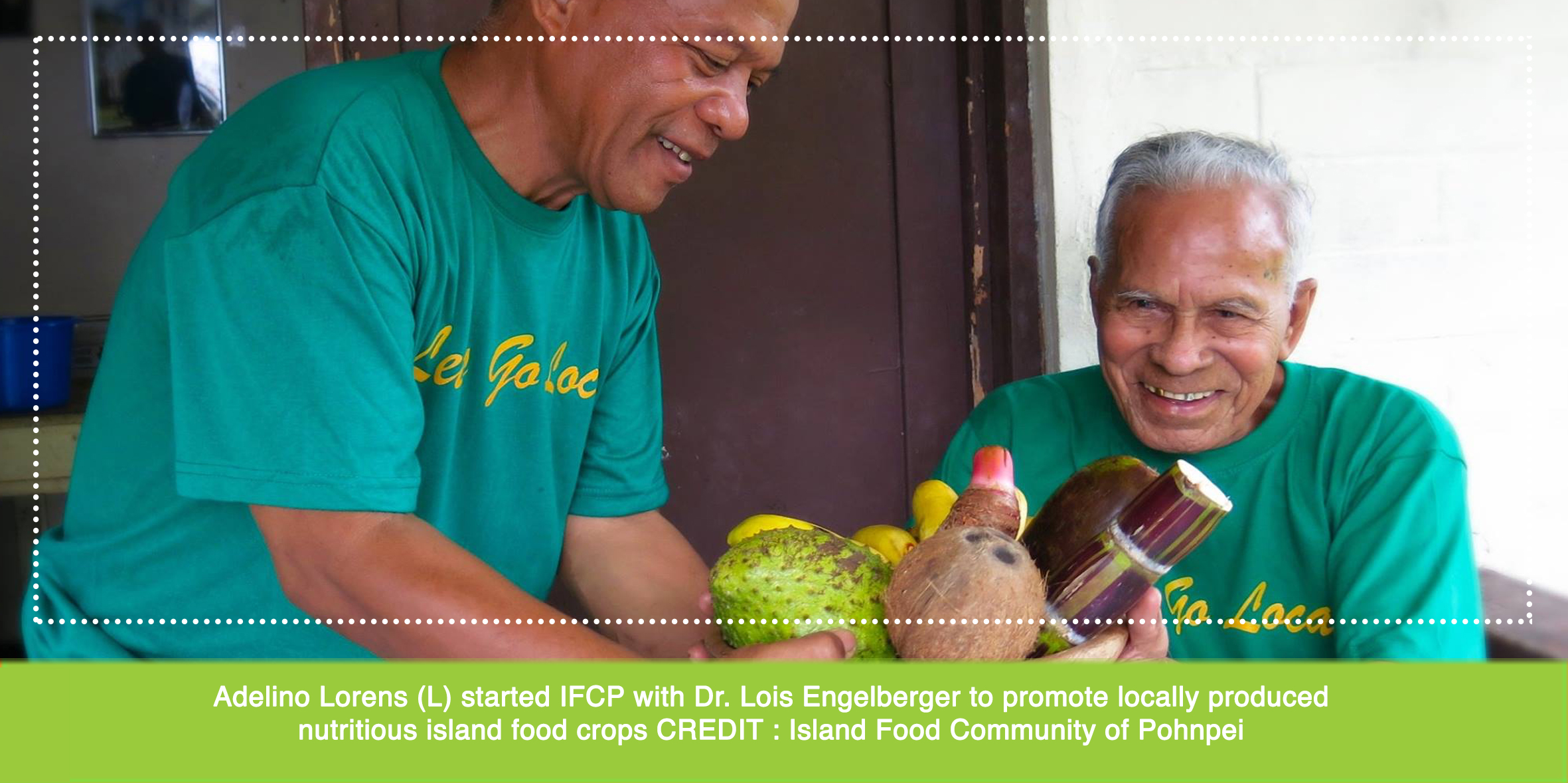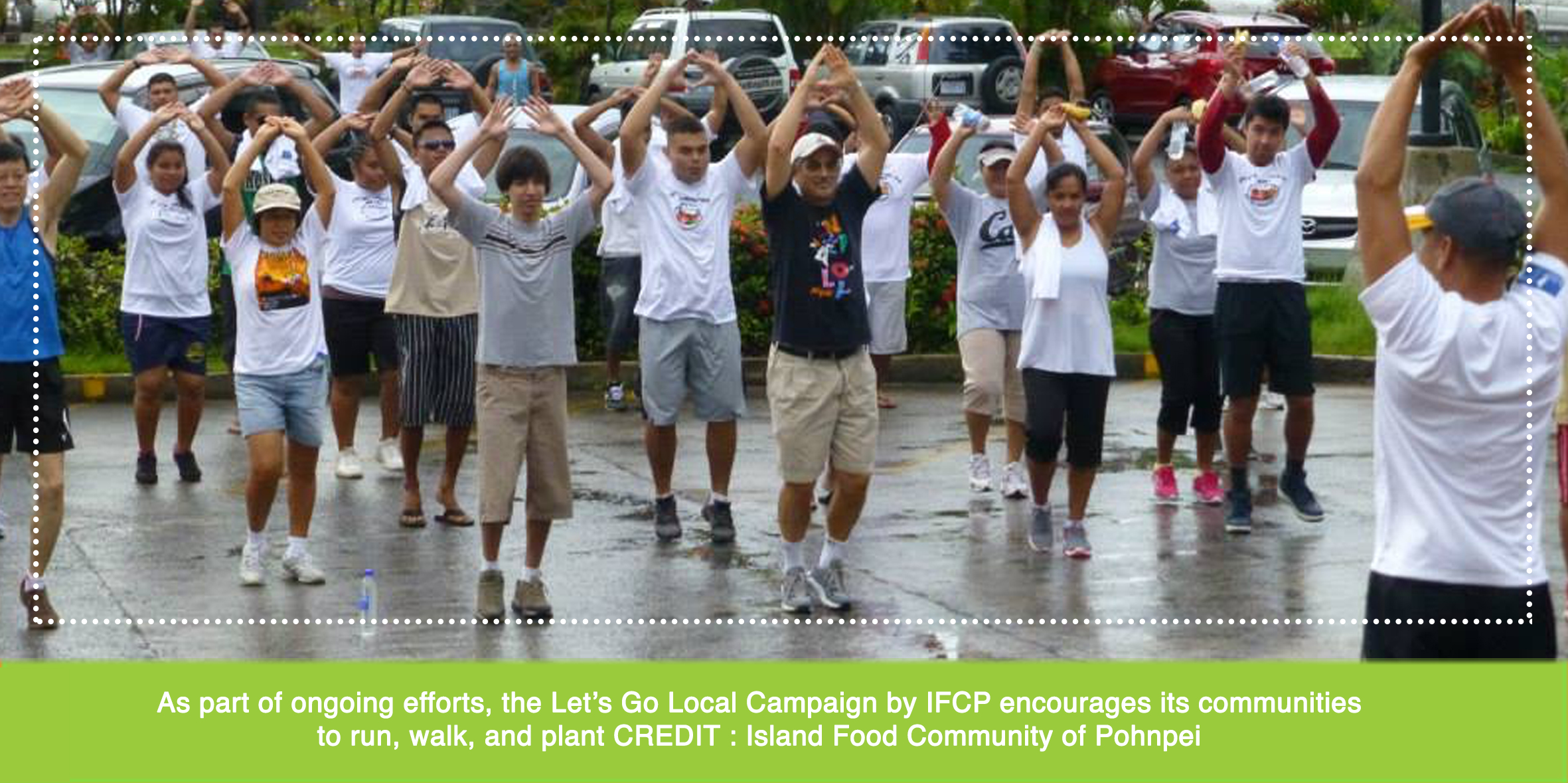b l o g
o c t o b e r 2 0 2 1

With Dr Craig Elevitch, Permanent Agricultural Resources (PAR)
Agriculture is a priority sector in the Federated States of Micronesia (FSM) and is identified as one of the three key drivers of the economy under the nation’s current Strategic Development Plan, along with tourism and fisheries.
The 2016 FSM Integrated Agriculture Census revealed that 90% of households in the Federation had access to land that can be used for agricultural purposes.
Additionally, of those households, 74% reported that the primary use of the land was to produce food for at-home consumption; 24% reported that it was mainly for home consumption but that they also occasionally sell goods produced.
Locally grown staple crops in FSM include banana, breadfruit, pandanus, swamp taro, and yam, with local preferences for these crops varying slightly by state.
While food grown in homegardens and small farms is primarily for local consumption, there is also small amount of export to regional markets, mainly to Guam, the Republic of the Marshall Islands, and Saipan.
The majority of agriculture exports come from Pohnpei (sakau [kava]) and Yap (betel nut), while exports from Chuuk (cooked foods, root crops, and bananas) and Kosrae (citrus, banana, and root crops) are very small in comparison.
In the coming weeks we will be highlighting some of the work of leading farmer organisations in the Federated States of Micronesia.

Leading farmer organizations
Pohnpei Women Empowerment Association (PWEA)
Pohnpei Women Empowerment Association (PWEA) was recently established to provide rural women of Pohnpei an opportunity to become contributors to the livelihood of their families and communities. Currently, 28 women participate directly in the organization.
PWEA was founded by Pohnpei Senator Herolyn Movick and her husband Mr. James Movick. They were motivated to create PWEA after learning that many of the women’s programs carried out by larger organizations were failing to reach rural women.
Their initial effort was to purchase sewing machines—paid for by the Movick family—to allow women to use their existing skills to generate additional income. Now because of the impacts and rippling uncertainties of the COVID-19 pandemic, they have expanded their focus to include increasing food security in beneficiary communities.
Enimwahn Development Association (EDA)
Established in 2012, Enimwahn Development Association is an NGO that supports community members and farmers of the Enimwahn community of Pohnpei by providing tools, seedlings, and technical assistance.
EDA currently serves over 100 farmers with their family farms. While EDA promotes almost all types of agriculture, the organization values traditional farming knowledge and is focused on agroforestry and subsistence production methods.
Island Food Community of Pohnpei (IFCP)
Driven by research, both community-based and scientific research since its inception in 2004, Island Food Community of Pohnpei (IFCP) started as a very small, community-based effort lead by Dr. Lois Engelberger and Mr. Adelino Lorens, and has received a fair amount of international and regional Pacific Island attention given its role in scientific research.

Chartered as an NGO, IFCP’s mission is to promote locally produced nutritious island food crops; to advance its vision, IFCP works with all agriculture stakeholders – including youth, women, and subsistence growers – to promote locally grown foods that have what they have branded as “CHEEF” benefits: Culture, Health, Environment, Economy, and Food security. Promoted local foods include breadfruit, banana, yam, giant swamp taro, pandanus and coconut.
IFCP’s “Let’s Go Local” campaign promoting local foods and other non-edible products was particularly successful and as a result, it is currently relatively easy to procure breadfruit trees in Pohnpei.
However, the botanical garden where IFCP’s offices are located is small and unable to curate all of the many different cultivars of breadfruit or other trees that grow in Pohnpei and FSM more broadly.
There is a women’s group that is a part of IFCP and that has stepped up to fill this gap as a registered supplier of tree seedlings.

